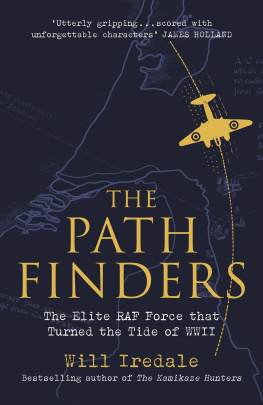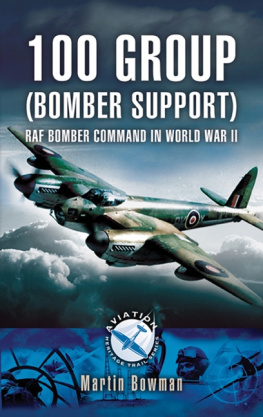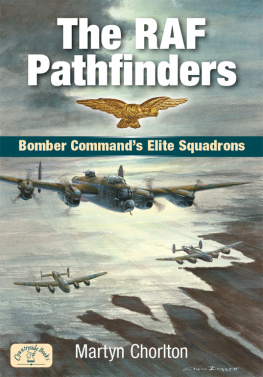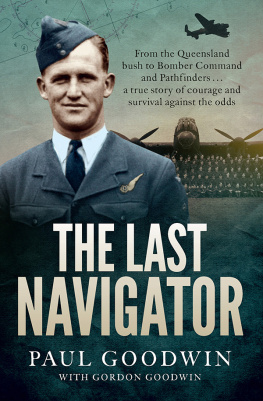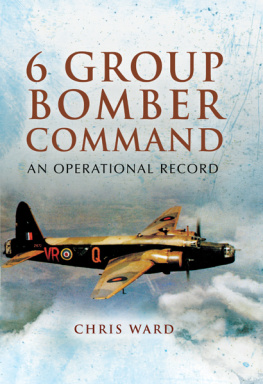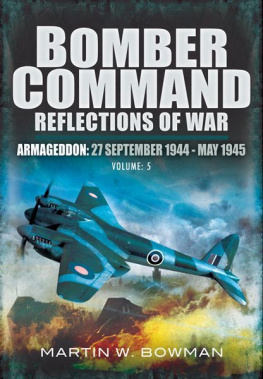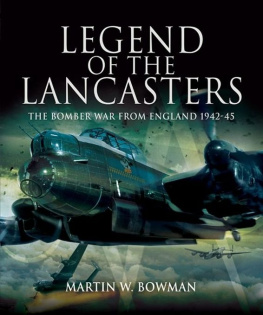

Will Iredale
The Pathfinders
The Elite RAF Force that Turned the Tide of WWII

Contents
About the Author
Will Iredale is a bestselling author, journalist and media consultant. After a decade working at the Sunday Times, first on the foreign news desk and subsequently the home news desk specialising in domestic news and investigations, he wrote the bestselling book The Kamikaze Hunters. He is currently a media consultant and lives in Kent with his family.
Also by Will Iredale
The Kamikaze Hunters
For Polly
Cast of Characters
Sir Arthur Harris: Air Officer Commanding-in-Chief (AOC-in-C), RAF Bomber Command
Sydney Bufton: Deputy Director (later Director) of Bomber Operations, Air Ministry
Don Bennett: Air Officer Commanding (AOC) RAF Bomber Command Pathfinder Force (8 Group)
Ralph Cochrane: AOC RAF Bomber Command 5 Group
Hamish Mahaddie: pilot and Pathfinder training inspector
John Doc Macgown: Pathfinder medical officer
Dr Wilfred Coxon: Technical Officer, Directorate of Armament Development, and inventor of the target indicator
Dr Alec Reeves: inventor of Oboe
Dr Bernard OKane: co-inventor of H2S
Allan Ball: wireless operator, 35 Squadron
Colin Bell: pilot, 608 Squadron
Ian Bazalgette: pilot, 635 Squadron
Max Bryant: navigator, 156 Squadron
John Christie: pilot, 35 Squadron
Alec Cranswick: pilot, 35 Squadron
Ulric Cross: navigator, 139 Squadron
Ernie Holmes: pilot, 35 Squadron
John Kelly: pilot, 83 Squadron
John Ottewell: navigator, 7 Squadron
Dick Raymond: flight engineer, 83 Squadron
Gwen Thomas: Pathfinder signals teleprinter operator

Prologue
T uesday, 19 May 1942 . The bubbly song of the nightingale drifted on the warm air as the technicians finished setting up their recording equipment in the fading light of the early summer evening.
Two decades before, the BBC had made its first ever live outside broadcast as the renowned cellist Beatrice Harrison played to a nightingale singing in the woods around her Surrey home. It had gone down a storm with the public listening on the radio, and live performances of Harrison and the nightingales had been broadcast most years since.
Now, once again, millions of people across Britain were preparing to tune in to the wireless and enjoy a few minutes of magical escape from the grim reality of war. As the technicians started recording, all that could be heard was the proud song of the little bird and the single distant whistle of a steam train.
However, another sound soon emerged. The soft hum of a solitary aeroplane high above, its tone changing as it flew overhead. Within minutes more planes followed. The hum became a drone until the sky all around throbbed with hundreds of engines.
Guessing the aircraft were from the RAFs Bomber Command on a mission to Germany, the BBC pulled the live feed, fearing the broadcast could potentially alert the Germans to an impending raid. But they kept the recording running, capturing the poignancy of the moment as the passing bombers failed to silence the plucky nightingale.
Two miles above, 29-year-old Hector Pilling focused on the controls of his Stirling bomber. The 6,380 horsepower from its four Bristol Hercules engines steadily pulled the 27-ton aircraft through the black sky towards the English coastline. An hour earlier, Pilling and his six RAF 7 Squadron crewmates had taken off from RAF Oakington in Cambridgeshire. After joining up in the air with almost 200 other aircraft from Bomber Command bases around eastern England, they headed towards mainland Europe.
More than 1,000 men most in their teens or early twenties flew alongside Pilling in their cramped bombers, focused on the mission ahead. Their objective was to attack Mannheim, an industrial town straddling the River Rhine in south-west Germany.
Fresh-faced and good-looking, Pilling was a popular figure in his squadron. He took pride in helping new crews learn the ropes. He flopped, he sprawled, and he walked or rather shuffled along, with a rolling gait. He spoke in a jerky manner, clipping and gobbling his words, said one friend. But behind all this was a decisive, forceful personality full of fun and enthusiasm.
The son of a diplomat, Pilling was born in Fiji, grew up in New Zealand and read law at Brasenose College, Oxford. Like many who went on to fly in wartime Bomber Command, he had joined a university air squadron, which promised the chance to fly and meet well-connected types in the RAF. A keen oarsman, Pilling prepared for a 1933 regatta by giving up alcohol and living on a milk diet. He fell off the wagon for the boozy university air squadron summer dinner and ended the evening over-enthusiastically bear-hugging the chief instructor who happened to be Keith Park, the First World War flying ace and future Fighter Command commander during the Battle of Britain.
No lasting harm was done, however, and by 1941 Pilling had volunteered for the RAF. He wanted to be a fighter pilot. Bombers dont much interest me, hed written home. But it was not to be. He excelled as a pilot and Bomber Command was desperate for decent drivers.
Five months later hed started operations over Germany: Ops themselves are not too bad, though they have their shaking moments Started with a rather warm visit to Cologne where alternately I chewed gum hard or held my breath.
In another bombing raid, on the French port of Brest, Pillings crew came under attack from three German fighters. His crew shot down one, peppered a second with gunfire, and the third broke off its attack, at which Hector became so furious that he turned round and chased it all the way back to Brest. I can picture him sitting at the controls getting very red in the face and muttering imprecations, his navigator said later.
Now, as they headed towards Mannheim, Pilling drew on the experience of 26 successful operations under his belt many against the heavily defended German industrial heartland in the Ruhr Valley. But he badly needed a rest from operational flying. The Ruhr grows less attractive every day, he wrote a few days before. I have had rather a bellyful of it relieved, occasionally by visits to hospitable Hamburg and the like.
Despite their relative familiarity with the route, as the bomber force approached Mannheim in the early hours of 20 May, without decent navigational aids many of the crews struggled to locate their targets even though the glow of fires started by the initial bombs could be seen 100 miles away.
Worse still, they had woken up the Nachtjger the feared German night fighters which began plucking off the lumbering British bombers as they began their return journey across the Low Countries towards England.
Next page
